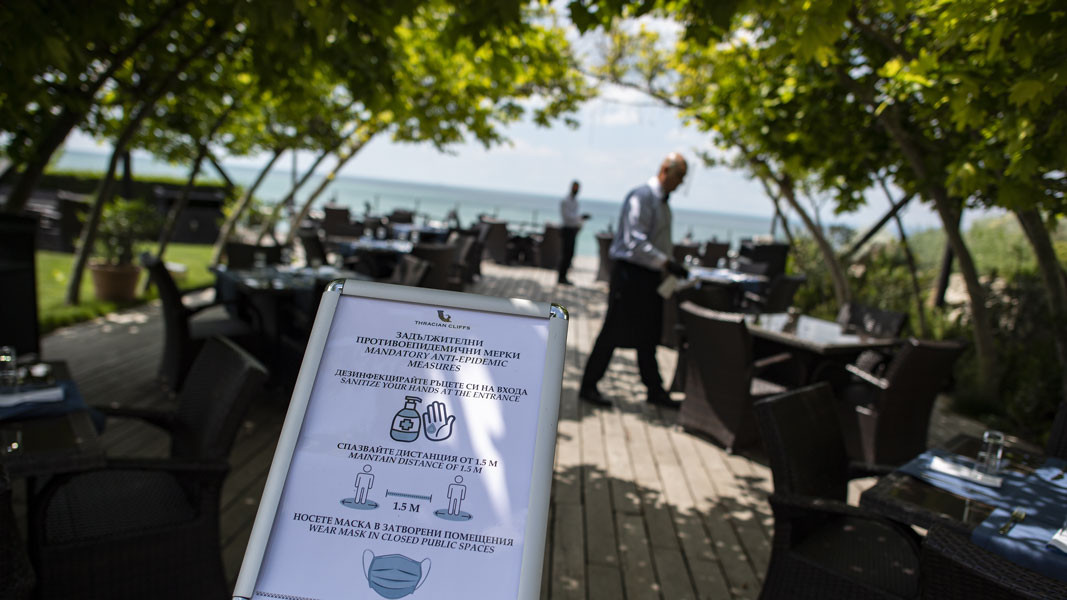The lack of enough qualified personnel is among the biggest problems of Bulgaria’s business. This is a long-lasting problem, which occurred long before the beginning of the Covid-19 pandemic. The interest in seasonal employment remains relatively constant. However, seasonal workers but workers must be careful when choosing their employer and be able to protect their rights if necessary. People working for a good employer are able to take out sickness and accident insurance and manage their overtime, which is not an exception during the seasonal employment.
There are many challenges. If you are a seasonal worker, you cannot not earn a lot of money, but you can save some. Thus, you can pay your rent, food and cover other costs, the seasonal worker Rayna Angelova told Radio Vidin and added:
“I am always in good relations and remain with positive impressions from my employers. When you know how much your labor costs and set your conditions in the very beginning, you can decide whether a given job suits you or not.”
People must be careful when they engage in seasonal employment, because bad employers often refuse to stick to the initial agreement, especially with regard to the employees’ insurances.
“Some employers promise to pay full-time social security contributions, but later they do not keep their word. People employed as seasonal workers at the Bulgarian coastal resorts often work seven days a week without any day off. However, it is worth working so many hours, if you compare your salary to the minimum monthly wage in Bulgaria”, said Georgi Danailov who decided to stay in his hometown this year and look for a stable job.

Every person is different and it is not right to say that young people are not able to work and that all they want is to have fun, said Georgi Danailov and specified:
“Indeed, many young people who work at the Black Sea coast are there to have fun, but everyone has to know their own abilities, especially if they know that they have to wake up early for work.”
A fair part of the tourism business in Bulgaria, which managed to withstand the challenges stemming from the Covid-19 pandemic, is trying to find the answer to the question: How will seasonal employment impact Bulgaria’s economy?:
“I hope that the third Covid-19 wave is over, the companies pick up speed and their turnover amounts to 50% to 60% of the pre-crisis levels. It depends on the type of the tourist facilities. The smaller tourist facilities seem to cope with the situation better. I hope that a good summer tourist season lies ahead,” said the Chairperson of the National Association of the Small and Medium-sized Business in Bulgaria Eleonora Negulova,.
Editing by: Yoan Kolev (written by Plamen Kotsev- Radio Vidin)
English version: Kostadin Atanasov
Photos: EPA/BGNESTransformation – this is the word that most accurately describes the current state of the Bulgarian industry. According to an analysis of sectoral data for the period from 2008 to the beginning of 2024, made by the Institute for..
Tourism is one of the sectors in Bulgaria ready to the greatest extent to smoothly continue working after Bulgaria joins the Еurozone , the executive director of the National Tourism Board, Dr. Polina Karastoyanova, believes. In tourism, and at this..
Bulgaria can be a strategic partner of Japan for the region of Eastern and Central Europe. This was stated by Bulgarian President Rumen Radev as he welcomed the participants in the business breakfast organized by the Japan-Bulgaria Business..
Fitch Ratings has affirmed Bulgaria's Long-Term Foreign-Currency Issuer Default Rating (IDR) at 'BBB' with a Positive Outlook, reported BTA...
One of the largest cargo ships in the world docked for the first time at the Port of Varna, delivering 58,000 tons of rapeseed, BGNES reported...

+359 2 9336 661
